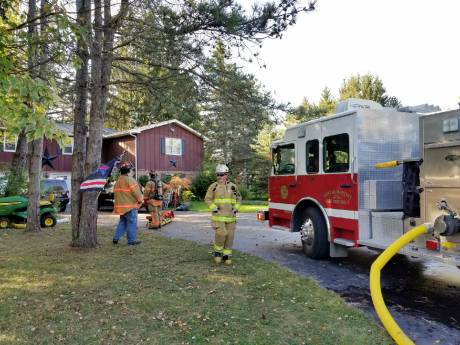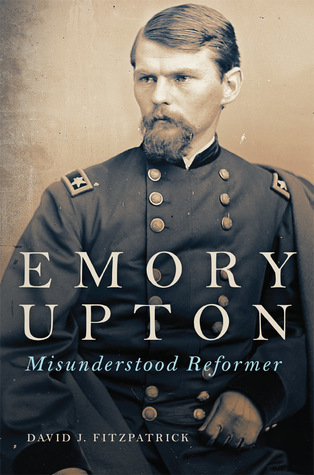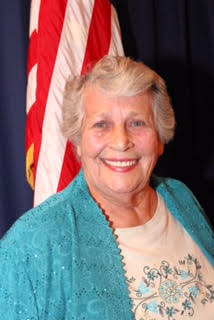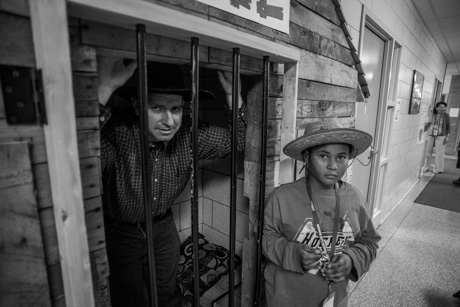Two-car accident with injuries at Oak and Richmond
There is a two-car accident with injuries at the intersection of Oak Street and Richmond Avenue, Batavia.
CIty fire along with two ambulances from Mercy EMS on scene.
There is a two-car accident with injuries at the intersection of Oak Street and Richmond Avenue, Batavia.
CIty fire along with two ambulances from Mercy EMS on scene.
Press release:
The City of Batavia Fire Department will be flushing fire hydrants on Monday, Oct. 2, from approximately 9 a.m. to 3 p.m. in the general area west of Bank Street and north of West Main Street.
Homes and businesses nearby will be affected. These tests may result in a temporary discoloration of water in that area. As in the past, please do not attempt to wash any clothing if your water appears discolored. If you do experience a discoloration of your water, run cold water for about 5 minutes or until clear.
A kitchen fire is reported at the Corfu Meadows Apartments, 53 W. Main St., Corfu.
One person may have suffered smoke inhalation.
Corfu fire dispatched.
Darien, East Pembroke, and Pembroke fire departments also requested to the city. City Fast Team called to the scene. The city's 1st plattoon asked to fill in at the city Fire Hall.
UPDATE 9:47 p.m.: Fire knocked down.

The Fifth Annual Run for the Acorns was this morning at Genesee County Park & Forest.
Here are the results:
10K
Male overall winners:
1 -- Chad Minuto (Batavia) time: 41:11
2 -- Michael Emmons (LeRoy) time: 46:34
Age 30-39 winner: Stephen Konieczny
Age 40-49: James Caswell
50-59: John Cole
60-69: Daniel Miller
Female overall winners:
1 -- Lyndsey Macmillan (Rochester) time: 47:13
2 -- Jess Juliano (Hamburg) time: 50:16
Age 30-39 winner: Jaime Kelly
40-49: Heather Biondolillo
50-59: Karen Samis
5K
Male overall winners:
1 -- EJ Boyce (Bergen) time: 19:15
2 -- Kevin Sheehan (Victor) time: 20:36
Age 14 and under: Cooper Konieczny
Age 15-19: Adam Hess
20-29: Thomas Demmer
30-39: Dave Bateman
40-49: Gabe Abdella
50-59: David Demmer
60-69: Frank Gioia
Female overall winners:
1 -- Kimberly Mills ( Basom) time: 22:06
2 -- Alison Zybczynski (Alden) time: 24:24
Age 14 and under: Ainsley Kent
15-19: Megan Smith
20-29: Kerry Mills
30-39: Amanda Hoy
40-49: Sheila Hess
50-59: Mary Ann Arnold
60-69: Denise Macpherson
For more photos: http://steveognibenephotography.zenfolio.com/f354975482




5K race and walk start pictured above.




A possible residential structure fire is reported at 2317 Angling Road, Corfu. East Pembroke fire is responding along with mutual aid from Town of Batavia and Corfu fire departments. The location is between West Avenue and North Angling Road.
UPDATE 5:31 p.m.: Photos and info from Alecia Kaus/Video News Service: The homeowner was attempting to smoke out bees and his house caught on fire. It got into the attic; a quick response by volunteer firefighters kept the fire from spreading.


Upton distinguished himself during the Civil War in battles at Salem Church, Spotsylvania, Opequon Creek, and in other engagements.
"He was one of the outstanding regimental commanders of the war," said Fitzpatrick, who teaches at Washtenaw Community College in Ann Arbor, Mich. "He had a tremendous tactical success at Spotsylvania."
The fact that Upton is still discussed among military leaders and those interested in military history, though, has more to do with his ideas and what he scribbled on paper than what he accomplished on the battlefield.
Some of what Upton wrote has led to more than 50 years of the Army officer being misunderstood and misrepresented, though, according to Fitzpatrick.
In the mid-20th century, Upton gained a reputation as a Prussian-inspired militarist with little respect for democracy. That assertion doesn't fit the documents in the historical record, Fitzpatrick contends and he makes that case in his new book: "Emory Upton: Misunderstood Reformer" (University of Oklahoma Press).
"Upton is an important figure in U.S. military history," Fitzpatrick said. "He's a figure a lot of people don't know about."
While you might expect a book steeped in military policy and battlefield strategy to be dull and dry, Fitzpatrick has written a story that is fascinating and at times even a real page-turner. Upton was a man both of action and ideas dealing with some of the most important considerations that would shape history after his death in 1881.
Batavia's Civil War hero was born to a farming family in Genesee County Aug. 27, 1839. A devout Methodist and a fervent abolitionist, Upton attended the era's most famous integrated college, Oberlin, before being accepted into West Point, graduating eighth in his class in May 1861 (The only blemish on his West Point career was a fight with a Southern cadet who made remarks behind his back, hinting that Upton had sexual relations with a black girl at Oberlin. Upton took offense and when the cadet wouldn't explain himself, Upton challenged him to a duel that became a fight in a West Point dorm.)
After the war, Upton was sent on an 18-month tour of Europe and Asia to study the military tactics of countries on those continents, especially Germany. When he returned he wrote "The Armies of Europe and Asia," "A New System of Infantry Tactics" and "Tactics for Non-Military Bodies" (aimed at civilian associations, police and fire departments); and more than 20 years after his death, his unfinished work, and most important book, "The Military Policy of the United States," was released by the War Department.
There were aspects of the military position in Germany that Upton admired and these served as a basis of Upton's recommended reforms to the U.S. military. This led to charges among critics that Upton and his like-minded reformers were trying to foist Prussian militarism on the United States.
These charges were amplified with the publication of a book in 1960 by Russell Weigley, "The American Way of War," which traced the intellectual development of military strategy and policy, and Stephen Ambrose, with "Upton and the Army," in 1964.
To Fitzpatrick, the real offense to Upton's legacy was the book by Ambrose. Weigley can be forgiven for getting Upton wrong, Fitzpatrick said, because he wasn't writing a biography, but Ambrose's biography began as his dissertation (and was published verbatim in book form).
"Ambrose was doing a biography but didn't dive into the sources he should have," Fitzpatrick said. "I think Ambrose read Weigley and just decided to echo Weigley."
Fitzpatrick poured through the letters of Upton, among other documents, with help from Sue Conklin, who at that time was Genesee County's historian, and the Holland Land Office Museum (Fitzpatrick was provided a CD of images of all the Upton letters in the HLOM's collection).
And going through Upton's letters isn't an easy task.
When arranging a visit to the County's history department, Fitzpatrick told Conklin his topic and Conklin told him, "Have you seen his handwriting?"
"No," Fitzpatrick admitted.
"You might want to consider another topic," was her droll response.
Fitzpatrick doggedly stuck with Upton's letters, however, which provided insight overlooked by Ambrose into Upton's thinking on military planning and civilian government.
Upton believed the Union could have ended the Civil War before the close of 1862 (it wouldn't end until 1865) if the military had been led by more competent officers, had been better equipped, staffed with more men, and Gen. George McClellan hadn't been hampered by interference from civilian bureaucrats, notably Secretary of War Edwin Stanton.
Even though Upton had been critical of McClellan during the war, his animosity toward Stanton was even deeper.
"He starts to twist history to make Stanton into the bad guy and McClellan a genius," Fitzpatrick said. "He wrote (in a letter) that he was having a hard time with 'the McClellan question,' as he calls it. It is really causing me trouble, he said. I hear him saying that he's having a hard time making the facts fit the story. Stanton was a meddling failure, not that it was McClellan himself who caused his failures."
The focus on Stanton, however, Fitzpatrick concludes, isn't because Upton is against civilian leadership of the military, but rather a concern that a war secretary with too much power could potentially use that position subvert the country's republican form of government.
Upton's reform ideas included mandatory retirement at age 62 for officers, rotation of officers between artillery and infantry, promotion on merit rather than seniority, and more training for officers.
While Upton was distrustful of democracy -- like Alexander Hamilton, fearing mob rule -- he saw the role of the military as protecting the nation's republican style of government.
He took note of the dictatorial powers assumed by George Washington and Abraham Lincoln -- "arbitrary arrests, summary executions without trial, forced impressment of provisions, and other dangerous precedents" for Washington; and in Lincoln's case, the suspension of habeas corpus, arbitrary arrests, and the seizure of the railroads, along with "opening the treasury to irresponsible citizens" -- and concluded with a query. If that is what happens when good men without a genuine dictatorial impulse are president, what would happen if a true authoritarian took office and there was a war?
Upton wrote, "Let us not stultify ourselves by talking of the danger of an army, but rather reflect that the lack of one may at any time, in the space of two years, bring upon us even graver disasters than Long Island or Brandywine, or the two Bull Runs ... Our danger lies not in having a regular army but in the want of one."
In other words, Upton concluded a professional military, vowed to protect and defend the Constitution, as a safeguard against civilians, especially the president, grabbing dictatorial power.
Upton was one of several reformers, Fitzpatrick said, who saw the need for a more highly trained military and professional officer corps heading into the 20th century but in Upton's lifetime, most of Upton's reforms were thwarted by politics. For the North, another insurrection seemed impossible and there was no apparent external threat to U.S. sovereignty, so reform didn't seem like a pressing need. The South was distrustful of the Army in general following Reconstruction.
The lack of external threats prior to 1860 is also one reason Fitzpatrick thinks Upton's idea that the war could have lasted less than two years with better preparation is unrealistic.
While it's interesting to contemplate how history might be different if the Civil War had come to an end before 1863 -- no Jim Crow South, as one potential outcome -- it would have required the Union to have in place a large, well-trained and equipped Army by 1860 and Congress would never have approved the expenditure.
"The only reason to have a large, well-trained Army prior to 1860 was to repress the South and Congress would never have done it, so it's kind of a moot question," Fitzpatrick said. "You never could have ended the war in 1862 because you would never have gotten the Army you needed."
By 1881, Upton began suffering from debilitating headaches. He was transferred to the Presidio in San Francisco but managed to delay assuming the command for three months while he sought treatment in New York. A doctor diagnosed a sinus problem and provided an electric treatment, which brought no relief. Upton probably suffered from a brain tumor. He transferred to San Francisco but the headaches grew worse. On March 15, 1881, he wrote his last words. A two-sentence letter to the adjutant general to tender his resignation. He then apparently took his own life with a revolver.
He was proceeded in death by his wife, Emily, and they are buried together in Auburn.
At the time of his death, "Military Policy of the United States" was incomplete and unpublished. The manuscript passed to a friend and slowly it circulated among the Army's officers, gaining a reputation for its insightful look at military policy and strategy. In 1904, the War Department published the book minus three chapters.
One of the chapters dealt with Roman military history and when Fitzpatrick first came across it, he thought it rather odd. It was placed between two unrelated chapters, which was also odd.
Years later while continuing his research, Fitzpatrick recognized Upton probably wrote the chapter quickly in a period of inspiration and that it contained a lesson relevant the political situation of the time.
While Upton admired President Ulysses S. Grant as a general, he was appalled by the corruption in his administration.
The Roman Republic possesses an interest, civil as well as military. "Forewarned is forearmed." Free people like the Romans admire heroism and love to reward military achievement.
No monarch in Europe has to day [sic] the power of an American President. With the consent of the Senate, from the Chief Justice down, he has the gift of more than 90,000 civil offices, any one of which save the judiciary, he can vacate and fill at pleasure.
Ever since the acceptance of the pernicious maxim "To the victor belong the spoils," these offices, like so much gold have been distributed by the senators and representatives to the men who have been, or maybe, most loyal to themselves or the party.
With the people thus accustomed to executive corruption let us imagine, as under the Roman System, our President, in uniform, booted and spurred, galloping from the White House to the camp, his military retinue swelled by senators and representatives, fawning for favor and scrambling for spoils, how long it be asked would our liberties survive ...
To historian, from example of Rome, might not fix the exact duration of the Republic, but he could make at least one prophesy of speedy fullfllment: At the first [meeting] held at headquarters the means would be discussed of prolonging the term of the President, if not the more startling propositon to declare him President for life.
"Upton wasn't writing about Rome," Fitzpatrick said. "It was about Ulysses Grant. He was writing at a time when Grant, running for a third term in 1880, was being seriously discussed. He had come to a different opinion of Grant. He had seen all the scandals of Grant's administration, and while he admired Grant as a general, the scandals appalled him.
"He's not talking about an imaginary president climbing on a horse. He's talking about Grant. If Upton was really a militarist interested in a military government, that wouldn't have bothered him at all."

Five individuals and the 1986-87 ice hockey team were inducted into the Batavia Blue Devils Hall of Fame on Saturday night at the 16th annual Induction Dinner at Terry Hills Restaurant. From left are Joe Fiannaca, captain of the hockey team; Nathan Hicks (track and field, Class of 1998), Bruce Dedman (baseball and basketball, Class of 1973), Brian Herdlein (baseball, football and basketball, Class of 1999); Jason Bibler (cross-country, indoor and outdoor track and swimming, Class of 1991), and Joe Amico (football and wrestling, Class of 1987).

Members of the 1986-87 ice hockey team, the first BHS sectional champion in the sport and NYS state finalists, are, front from left, Mike Siembida, Joe Fiannaca, Tony Graber, Steve Pies, Greg Fiannaca and Ted Lesh; back, Tony Tresco, Assistant Coach Roy Reed, Brian Wormley, Brett Wormley and Steve Lakins. About 140 people attended the dinner.
Photos by Mike Pettinella.
A car vs. bicycle accident is reported at 541 E. Main St. City fire and Mercy medics responding.
A tractor has reportedly fallen off the trailer resulting in an injury accident in the area of Darien Alexander Townline Road and Attica Road, Alexander.
Alexander fire and ambulance responding
UPDATE 12:39 p.m.: It's now reported as a backhoe that fell off the trailer, no other vehicles involved.
UPDATE 12:30 p.m.: A chief on scene reports the vehicle off the road, no injuries.

Batavia PD released these images today of a larceny suspect. The man in the pictures may have stolen items from a local store. People with information that may assist in the investigation are asked to call Officer Nicole McGinnis at (585) 345-6350.

Michael Alan Shelter, 27, of Lewiston Road, Alabama, is charged with: DWI; driving with a BAC of .08 or greater; criminal possession of a controlled substance, 7th; aggravated unlicensed operation, 2nd; and leaving the scene of a property damage accident. At 2:23 p.m., deputies responded to a report of a motor-vehicle accident on Maple Road, Alabama, where the driver had fled the scene. Deputy Chris Erion and K9 "Destro" were dispatched and Shelter was located not far from the scene of the accident. The incident was investigated by Deputy Eric Meyer.
Aaron Robert Webb, 21, of West Combe Park, West Henrietta, is charged with unlawful possession of marijuana, failure to stop at stop sign and insufficient tail lamp. Webb was stopped at 11:57 p.m., Thursday, on Telephone Road, Pavilion, by Deputy Eric Meyer.
Joshua A. Aughenbaugh, 23, of Junction Road, Pavilion, is charged with endangering the welfare of a child and harassment. Aughenbaugh is accused of holding a child behind a running vehicle in an attempt to prevent the child's mother from putting the vehicle in reverse. Aughenbaugh is also accused of butting heads with the woman and shoving her. He was jailed on $500 bail.
Leaha RaeAnne Wimmer, 25, of Allen Road, Albion, is charged with grand larceny, 4th. Wimmer allegedly stole a debit card and made purchases with it.
Press release:
The City of Batavia Fire Department is sponsoring the 5th Annual Fire Prevention Week Coloring Contest. This coloring contest is open to students from grades kindergarten – five.
“Our hope is to get the children to discuss fire safety with their teachers, other students and parents/guardians.”
Information has been distributed to City schools, but we wanted to include any City area homeschooled children as well. Copies of the official coloring page and contest rules can be picked up at City Fire Headquarters, 18 Evans St. We encourage all eligible students to participate.
The 2017 Fire Prevention Week (Oct. 8-14) theme is “Every Second Counts: Plan 2 Ways Out!” Additional information can be found at the Fire Prevention Week website www.FPW.org
“We all practice fire drills at work, at school; but how many of us have actually practiced a fire drill at home?”
“Practicing Exit Drills in the Home (EDITH) is important for the entire family. Drawing a map of your home, knowing two ways out of every room and having a meeting place outside where all family members can gather in case of an emergency are important steps that all families should practice.”
Any posters wishing to be entered need to be at the Fire Station located at 18 Evans St. in Batavia no later than 4 p.m. on Thursday, Oct. 12.
Judging of the posters will take place Oct. 13th – 15th. The winner of each group will receive a ride to school on a City fire engine, and be invited to a special awards luncheon with their family held at the fire station. Second- and third-place finishers in each group will also be invited to the fire station awards luncheon.
The best of luck to the students! Full rules are available at the City of Batavia Fire Department on Evans Street in Batavia or by contacting us via email. (gireland@batavianework.com)
Press release from Assemblyman Steve Hawley:
“Hunting is deeply indoctrinated in Western New York culture. Nothing is more satisfying to hunters across the state than waking up early and trekking the woods with family and friends in pursuit of taking home big game.
This is a time-honored tradition passed from parents to their children and with that comes the respect and appreciation for firearms and the Second Amendment.
“I was proud to introduce and once again pass a bill authorizing big game hunting for Orleans and Genesee counties and look forward to the festivities and success of our local hunters. As a proud outdoorsman myself, I always strive to advocate for and protect our right to bear arms and of course, ensure the highest level of hunter safety and environmental conservation.
"It is crucial to receive proper training before practicing the art of hunting and always adhere to strict safety procedures when out tracking your game. Hunting is a prominent tourist attraction in our region, drawing many from across the state to our world-class hunting destinations and in doing so supporting our local small-businesses bolstering the regional economy.
"Good luck to all my fellow outdoorsmen this year and happy hunting!”
Press release:
Assemblyman Steve Hawley (R,C,I-Batavia) today voiced his continuing opposition to a policy pushed by Downstate special interests during this past budget cycle, which raises the age of criminal responsibility from 16 to 18 in some circumstances. The law, which many have coined the "gang recruitment bill" establishes a youth classification in a superior court in each county that has jurisdiction over juvenile offenders and a new class of adolescent offenders.
“This is one of the most misguided and frankly dangerous pieces of legislation that has ever hit my desk as a state legislator,” Hawley said. “As I said at the time it was being considered, a contentious policy like this should never be used as political leverage in a state budget and this was a cowardly attempt by downstate liberals to handcuff many legislators into voting for this as it was lumped in with various other spending items in one massive bill.”
With the new law, certain criminal cases can be sent to Family Court even if the charges are 2nd-degree murder, 1st-degree rape, 1st-degree criminal sexual act or an armed felony. The governor is using this as another mechanism to force counties to adhere to his reckless spending practices. If a county stays under the tax cap, there is no cost to them but if they exceed it they may not be reimbursed by the state.
“Allowing murderers, rapists, and armed robbers to avoid harsher sentencing by sending them to family court is unconscionable,” Hawley said. “In doing so, we run the risk of these violent offenders returning to our neighborhoods more quickly and that should scare everyone. Only in liberal-dominated New York do New York City politicians think a 16 or 17-year-old doesn’t know that murder or armed robbery is wrong and shouldn’t be responsible for his or her actions.
"I was proud to vote against this bill and am requesting Gov. Cuomo use state funds to reimburse counties for the added court and administrative costs that our local governments simply can’t afford.”

Mother Nature got a little artistic this afternoon, putting a rainbow over Seymour Place, home of GO ART!, in Batavia.
Reader-submitted photo.

Thursday night was open house for Batavia High School, with teachers on hand to provide parents information on homework, assignments, chances for college credit, classroom expectations, and to answer questions and show off students' work.






Press release:
On Thursday, Sept. 28, at approximately 12:14 p.m., State Police were dispatched to investigate a serious injury tractor-trailer accident on I-90, westbound near exits 47 and 48, in the Town of Stafford.
The investigation at the scene revealed that the driver of the tractor-trailer William W. Frank, age 46, of Alden, was traveling westbound on I-90, in the Town of Stafford and for an unknown reason drove off the right shoulder of the roadway and into a heavily wooded area. The driver of the tractor-trailer was ejected from the vehicle and was pronounced deceased at the scene.
The accident is being investigated by New York State Police Commercial Vehicle Enforcement Unit (CVEU). No other vehicles were involved in the accident, no other injuries were reported.
Press release:
GO ART! is pleased to cosponsor this free presentation with the Oakfield Historical Society at 7 p.m. on Tuesday, Oct. 3, at the Oakfield Community & Government Center. Michael Eula, Ph.D., Genesee County Historian, will speak on the history of Italians in Genesee County, a subject particularly interesting to the Oakfield community's history with the gypsum mine.
This talk is presented as part of GO ART!'s GO-C Series.
Eula gives the following introduction to his program:
"On November 2nd, 1905, an Italian immigrant, Gaitano Valente, while working as a miner in Oakfield for the United States Gypsum Company, was killed in an avalanche of rocks that were being excavated. Less than a year later, on September 13th, 1906, it was reported that “200 Italians from New York City” were being brought into Oakfield to work as strikebreakers for that same company. It was assumed that a riot would ensue – and as a result, there was a collection of guns to be used in the expected confrontation.
"These two incidents took place within a national context of mass Italian immigration punctuated by a perception of Italians as the 'other' – a characterization capable of producing the largest mass lynching to ever take place in American history – the infamous murder of eleven Italian immigrants in New Orleans in 1891. This event served as a catalyst for attacks on Italians throughout the nation. The obvious question, then, is how the Italian immigrants of the late nineteenth century – the 'other' as depicted routinely in the newspapers of the day – could become, only a few generations later, a respected and influential member of American society.
Focusing on this question in terms of Genesee County, we will follow the journey of the typical Italian immigrant in the late 1800s as he or she, in subsequent generations, evolved from the outsider on the margins of society into a member of the mainstream of Genesee County – and American – life.
Becoming American: The Journey of Italians in Genesee County, NY
By Michael Eula, Genesee County Historian
Tuesday, Oct. 3, 7 p.m.
Oakfield Community and Government Center
3219 Drake Street, Oakfield
Free admission. Co-sponsored by GO ART!'s GO-C Genesee-Orleans Culture Connects Series

The "Le Royan of the Year" Recognition Banquet
Saturday, Oct. 7th
Social hour: 6 p.m.
Dinner: 6:45 p.m.
at The American Legion, 53 W. Main St., Le Roy
Tickets: $20, available at the American Legion -- 768-2090

The students at John Kennedy School raised $555 for new library books and Principal Paul Kessler paid the price.
As a "reward" for the students, Kessler spent the day in jail.
Students, such as third-grader Anthony Nesbitt, took turns as guards to ensure he didn't escape.
The pre-lunch crowd passing the jail was pretty merciless. "You stay locked up, Mr. Kessler," more than once said as they walked in their class lines.
"The kids are having fun with it," Kessler said. "So are some of the teachers."
Copyright © 2008-2022 The Batavian. All Rights Reserved. Privacy Policy | Terms of Service